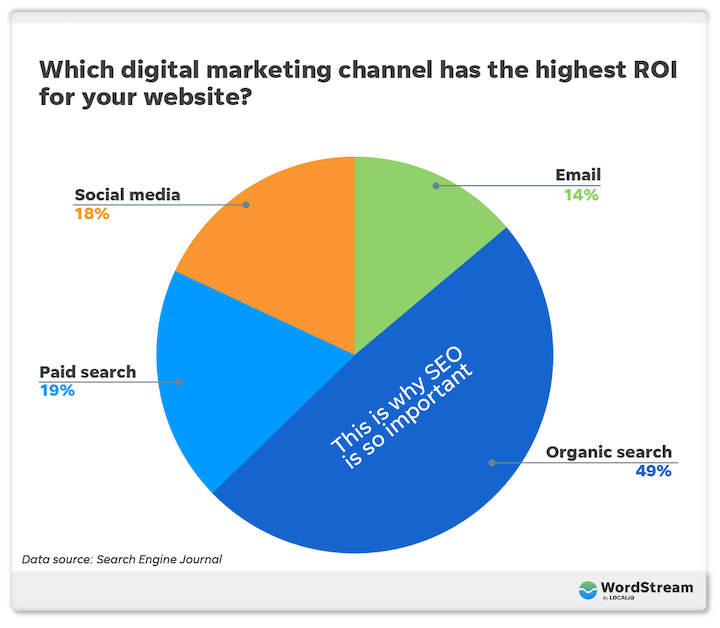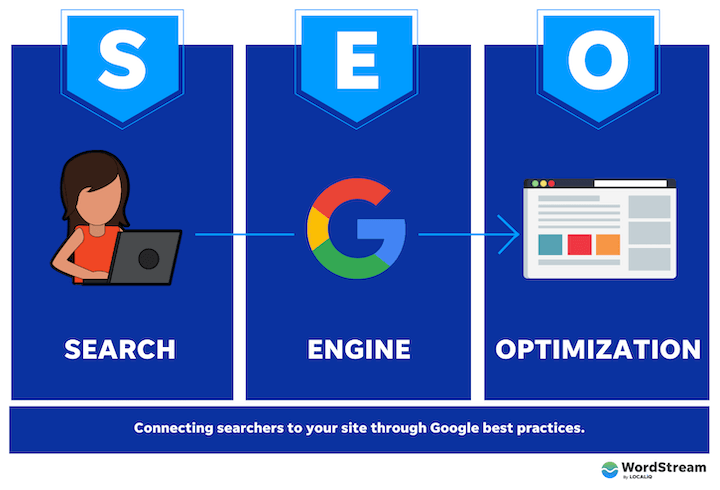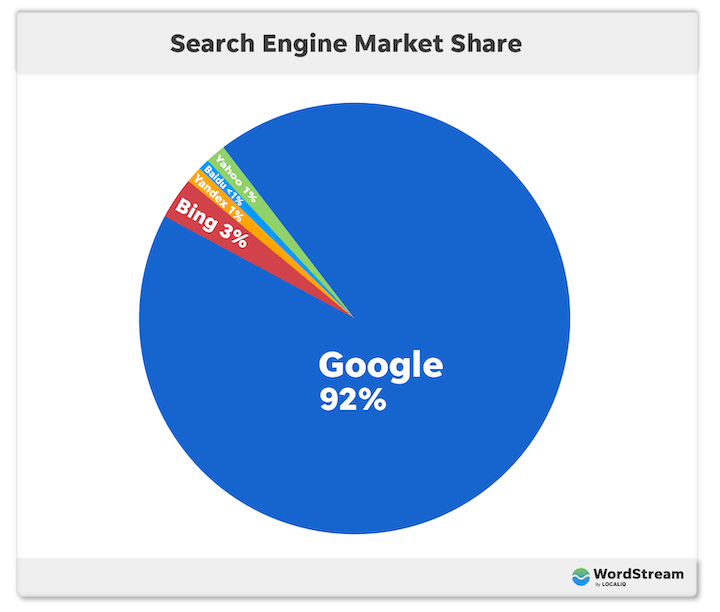How to do SEO?
For most of us today, when we need something—whether it’s an answer, idea, strategy, or service—we start by asking search engines. Google alone gets 3.5 billion searches per day. So just as search engines have become integral to our lives, so, too, has it become integral to many business marketing strategies. In fact, organic search is considered to be the highest ROI channel by 49% of marketers.

Organic search is just a fancy name for regular, non-ad search engine results, and the way marketers use organic search as a marketing channel is through search engine optimization, or SEO.
So how can you use the power of search engines to grow your business? In this complete guide to SEO, you’re going to learn everything you need to know to rank higher on Google, get more traffic to your site, and improve your brand reputation.
Table of contents
- What does SEO stand for?
- What is SEO?
- Benefits of SEO
- Types of SEO
- How does SEO work?
- SEO ranking factors
- On-page optimization
- Off-page optimization
- Technical SEO
- SEO tools
- SEO strategies and best practices
- Further learning
What does SEO stand for?
SEO stands for search engine optimization. Let’s break that down in the context of your website.
- Search: What people do when they want to find an answer to a question or a product or service that meets their needs.
- Search engine: A site (like Google or Bing) where a person can perform said search.
- Search engine optimization: What you do to get said search engine to connect said search with your site.
What is SEO?
That’s all well and good, but you can tell me that RPA stands for robotic process automation and that doesn’t mean I know what RPA is.
So what is search engine optimization?
A formal definition of SEO:
Search engine optimization is a set of technical and content practices aimed at aligning a website page with a search engine’s ranking algorithm so it can be easily found, crawled, indexed, and surfaced in the SERP for relevant queries.
A simpler definition of SEO:
SEO is about making improvements to your website’s structure and content so its pages can be discovered by people searching for what you have to offer, through search engines.
The simplest definition of SEO:
SEO is what you do to rank higher on Google and get more traffic to your site.
Yes, Google is just one search engine of many. There’s Bing. Directory search engines. Even Instagram is a search engine. But capturing 92% of the market share, the terms “Google” and “search engine” are synonymous for the intents and purposes of this post.
Benefits & importance of SEO
People are searching for any manner of things both loosely and directly related to your business. These are all opportunities to connect with these people, answer their questions, solve their problems, and become a trusted resource for them.
- More website traffic: When your site is optimized for search engines, it gets more traffic which equates to increased brand awareness, as well as…
- More customers: To get your site optimized, it has to target keywords—the terms your ideal customers/visitors are searching—meaning you’ll get more relevant traffic.
- Better reputation: Ranking higher on Google builds instant credibility for your business. If Google trusts you, then people trust you.
- Higher ROI: You put money into your website, and into the marketing campaigns that lead back to your website pages. A top-performing site improves the fruits of those campaigns, making your investment worth it.
So whether you want more brand awareness, online visibility, leads, sales, or loyal customers, SEO is your answer.


Comments
Post a Comment